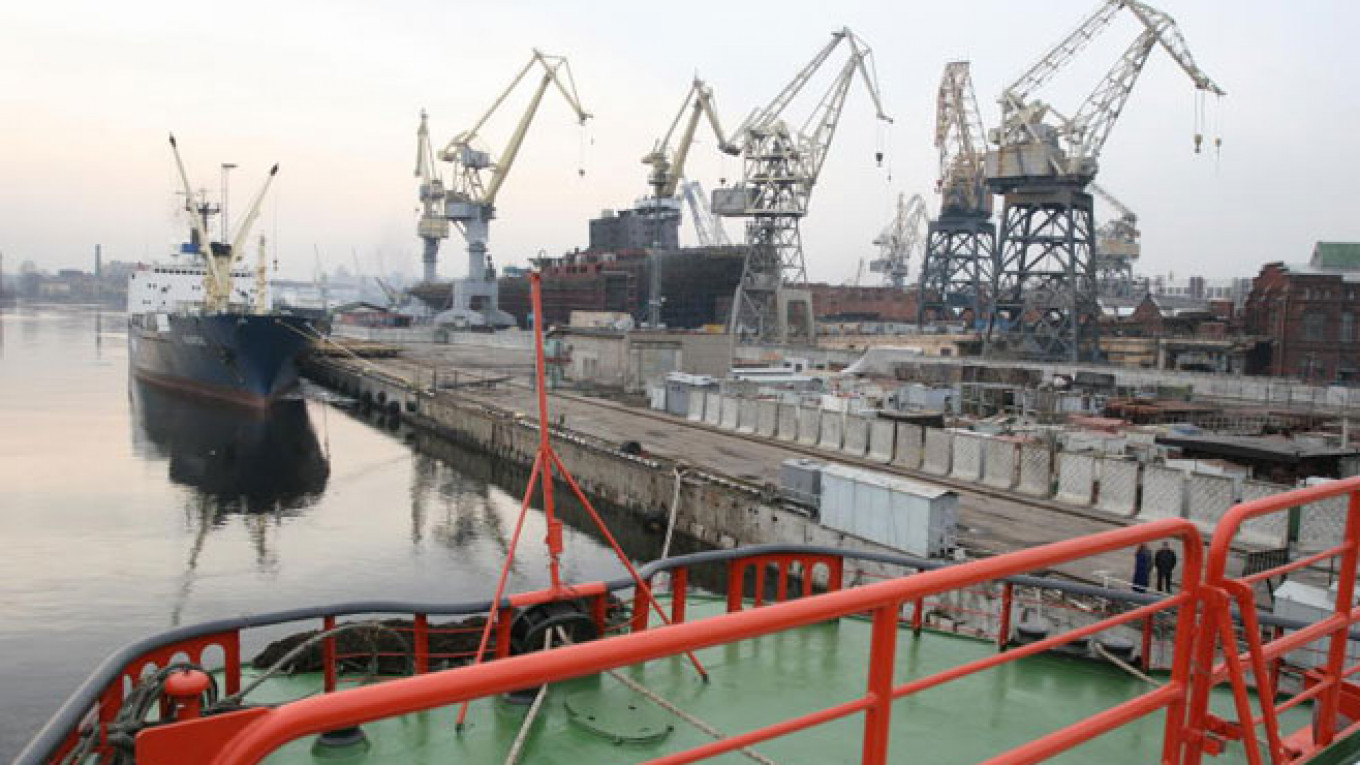As military orders pack into Russia's shipyards to supply Moscow's huge rearmament drive, President Vladimir Putin on Thursday said that developing civilian shipbuilding was needed to diversify and grow the country's moribund economy.
Civilian orders have been crowded out by booming military production, forcing energy majors working in Russia's Arctic to turn to foreign companies for technology and vessels.
"The issue of modern, competitive ships is of particular importance," Putin said at a meeting on the development of the civilian shipbuilding industry in Vladivostok, according to a transcript published on the Kremlin website.
"It is not only an indicator of technological, industrial and human resource potential in the shipbuilding industry itself, but a strong driver of growth in related industries and supply chains — such as the engineering, metallurgy and applied scientific research sectors," he explained.
As Putin spoke in the Far East, the governor of Arkhangelsk in the northwest announced his region, home to the huge Sevmash shipyard, would get 69 billion rubles ($1.5 billion) in federal subsidies to boost its shipbuilding capacity, the RIA Novosti news agency reported.
Marshal Priorities
With Moscow investing 20 trillion rubles ($500 billion) in a rearmament program through 2020, military projects have grown to account for 81 percent of all shipbuilding, Deputy Prime Minister Dmitry Rogozin said last month. Military shipbuilding expanded by 13.8 percent this year, he said, while civilian shipbuilding grew by only 6.6 percent. This trend is expected to continue for the next several years.
With Russia's economic growth running at near zero, Putin said new shipyards, such as one being built in the Far East, would help stimulate the industry and surrounding sectors and cater for rising demand for large transport ships.
Russian energy companies are leading the charge into the resource rich Arctic, and ambitions to open the Northern Sea Route from East Asia to Europe are growing as the region becomes more industrialized.
Putin said there is a need for "a large volume of orders for reliable, modern ships," adding, "it is crucial that these orders go to domestic shipyards … not foreign companies."
Foreign specialists may however be needed to help modernize Russia's production and management processes, he said, keeping the door open for partnerships with foreign firms.
Government interest may be arriving late: Companies like Rosneft and Gazprom, frustrated at capacity shortages, are moving to develop their own shipyards. Yamal LNG, which is building a fleet of 16 gas carrying vessels for its huge liquid natural gas facility in northwest Siberia, has ordered 10 ships from Asian and Canadian builders, according to business daily Vedomosti. The final six were to be built by Sovcomflot, one of Russia's biggest yards, but the shipbuilder doesn't not have enough money to build them, the newspaper reported Thursday, citing sources close to the company.
Contact the author at [email protected]
A Message from The Moscow Times:
Dear readers,
We are facing unprecedented challenges. Russia's Prosecutor General's Office has designated The Moscow Times as an "undesirable" organization, criminalizing our work and putting our staff at risk of prosecution. This follows our earlier unjust labeling as a "foreign agent."
These actions are direct attempts to silence independent journalism in Russia. The authorities claim our work "discredits the decisions of the Russian leadership." We see things differently: we strive to provide accurate, unbiased reporting on Russia.
We, the journalists of The Moscow Times, refuse to be silenced. But to continue our work, we need your help.
Your support, no matter how small, makes a world of difference. If you can, please support us monthly starting from just $2. It's quick to set up, and every contribution makes a significant impact.
By supporting The Moscow Times, you're defending open, independent journalism in the face of repression. Thank you for standing with us.
Remind me later.


